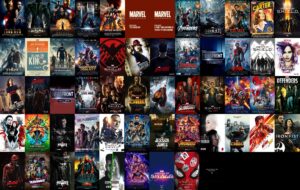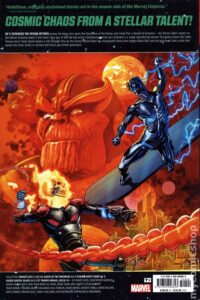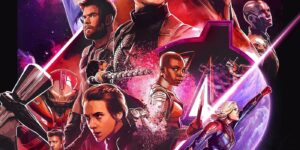Leadership in the Marvel Universe: A Closer Look

- À la recherche de « l’ange » qui m’a retenu sur le pont de Westminster
- How Marvel’s Upcoming Releases Will Change The MCU Forever
- A Different Kind Of Hero Worship: Marvel’s Devotion To Comic Book Fans
- The Best Character Moments In Recent MCU Films
- Perms Are Coming Back—but They’re Getting a Modern
The Marvel Cinematic Universe (MCU) has been captivating audiences worldwide for over a decade, showcasing larger-than-life characters, epic battles, and thrilling storylines. Amidst the action-packed scenes and witty one-liners, something remarkable has emerged: a profound exploration of leadership. From Captain America’s unwavering sense of duty to Black Panther’s visionary approach, the MCU has consistently demonstrated that leadership is a complex, multifaceted concept that can make all the difference in the world.
In recent movies, Marvel has skillfully woven leadership lessons throughout the narratives, often subverting traditional notions of what it means to be a leader. One notable example is Captain Marvel, which flips the script on conventional leadership by centering a character who, by all accounts, shouldn’t be in charge. As an alien-human hybrid with immense powers, Carol Danvers is deemed too volatile and unpredictable by her handlers. Yet, as she discovers her true identity and gains control over her abilities, she emerges as a powerful leader, unshackled by the constraints of traditional authority.
On the other hand, Avengers: Endgame presents a more nuanced portrayal of leadership through the character of Tony Stark. The genius inventor and billionaire philanthropist has long been the de facto leader of the Avengers, but his ego and tendency to micromanage often led to friction within the team. As the stakes reach their highest, Tony must confront his own limitations and learn to trust others, ultimately surrendering to a more collaborative approach that allows the team to succeed.
Another fascinating case study is Shuri, the brilliant princess of Wakanda from the Black Panther series. A tech genius in her own right, Shuri embodies the spirit of transformational leadership, constantly pushing boundaries and driving innovation. Her partnership with her brother, T’Challa, showcases a dynamic where the leader actively seeks input from others, encouraging creativity and growth within the organization.
Moreover, Marvel has also explored the darker aspects of leadership, particularly through the character of Thanos. A charismatic figure with a twisted sense of purpose, Thanos epitomizes the dangers of authoritarian leadership, where a single individual’s vision becomes the only truth, and dissent is quashed at all costs. His unyielding commitment to his cause serves as a chilling reminder that leadership can be used for both good and ill.
What can we learn from the leaders of the Marvel Universe? Here are a few key takeaways:
- Adaptability is essential: Successful leaders in the MCU are those who can adapt to changing circumstances, rather than clinging to a rigid plan.
- Emotional intelligence matters: Marvel’s leaders understand the importance of empathy, self-awareness, and social skills in motivating and connecting with others.
- Collaboration is key: Effective leaders often surround themselves with diverse perspectives and expertise, recognizing that they can’t do it alone.
- Power comes with responsibility: The best leaders in the MCU use their power for the greater good, recognizing that their actions have far-reaching consequences.
As the Marvel Universe continues to expand, it will be fascinating to see how the role of leadership evolves. One thing is clear: the lessons learned from these larger-than-life characters can have a profound impact on our own understanding of leadership and the qualities that make a true leader.




